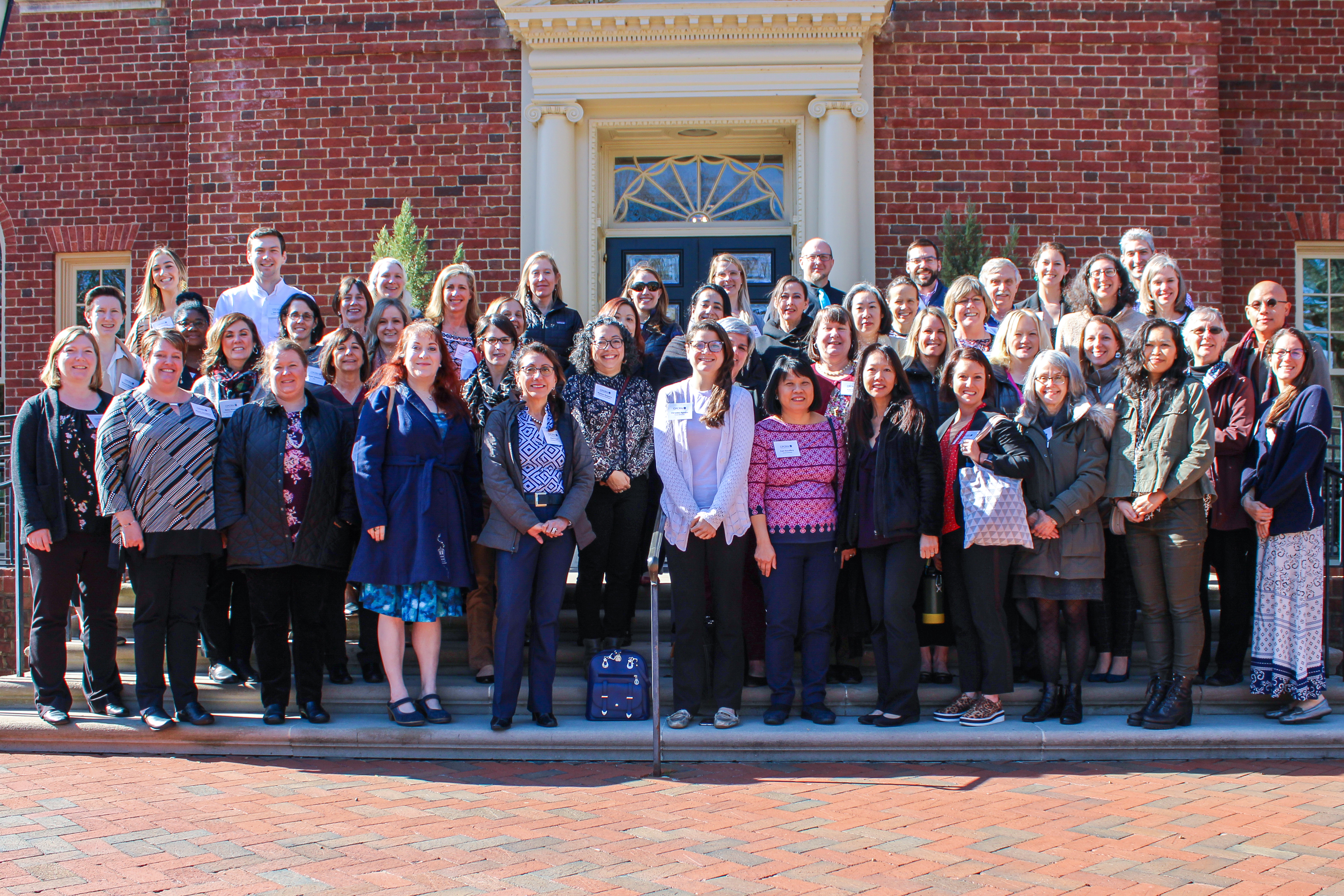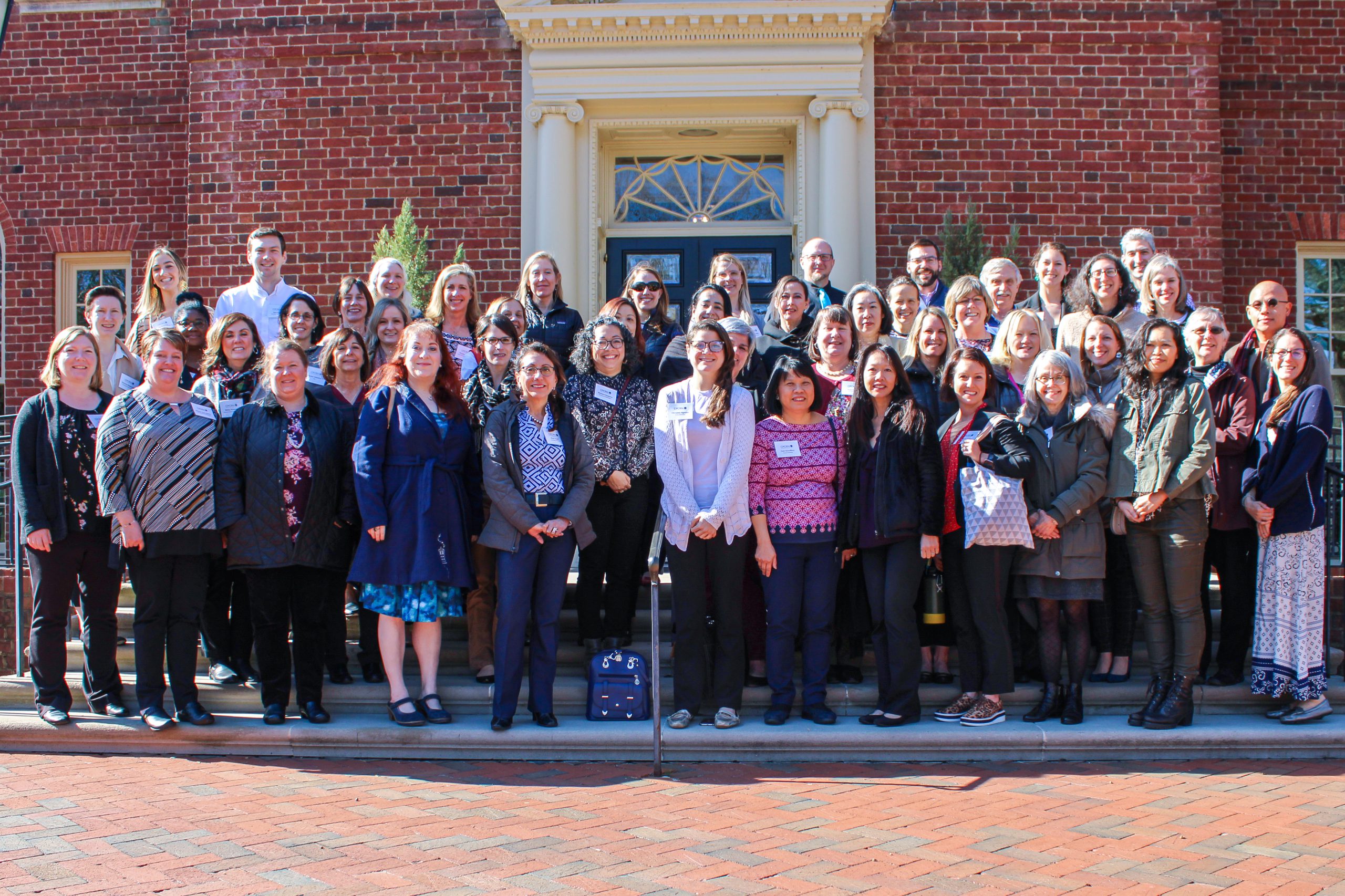
Fifty-three cancer researchers from eight different academic institutions around the country and their federal agency partners met in Chapel Hill on January 27 and 28 to launch the next five years of the Cancer Prevention and Control Research Network (CPCRN). In September 2019, the Division of Cancer Prevention and Control at the Centers for Disease Control and Prevention (CDC) awarded the NYU Grossman School of Medicine and the CUNY Graduate School of Public Health and Health Policy (CUNY SPH) $1.5 million over the next five years to participate in the network.
For the 2019-2024 cycle of funding, the New York City (NYC) CPCRN is one of two new CPCRN collaborating centers. Six centers will rejoin or continue to participate in the network with renewed funding. The centers and their principal investigators are as follows:
- Emory University: Cam Escoffery, PhD
- University of Iowa: Natoshia Askelson, PhD
- NYU Grossman School of Medicine-City University of New York : Chau Trinh-Shevrin, DrPH
- University of Arizona: Cynthia Thomson, PhD
- University of South Carolina at Columbia: Daniela Friedman, PhD and James R Hébert, ScD
- Colorado School of Public Health: Betsy Risendal, PhD
- University of North Carolina – Chapel Hill: Jennifer Leeman, DrPH, MDiv and Alison Brenner, PhD
- University of Washington: Peggy Hannon, PhD and Linda Ko, PhD
- CPCRN Coordinating Center: Stephanie Wheeler, PhD
Initiated in 2002, CPCRN is the largest and longest-standing thematic research network of the Prevention Research Center (PRC) program, the CDC’s flagship program for preventing and controlling chronic diseases. Eight PRCs from around the country participate in CPCRN, including the NYC PRC. Researchers from each PRC collaborate within and across their centers to produce research related to the implementation of evidence-based approaches to reduce the burden of cancer, especially in disproportionately affected populations. Since 2004, CPCRN members have produced 1,796 publications and obtained over $669 million in grant funding.
“We are delighted to be in our 16th year of continuous funding as the Coordinating Center for the CDC Prevention Research Centers’ largest thematic research network,” said Stephanie Wheeler, the principal investigator for the CPCRN Coordinating Center. “CPCRN has made a profound impact on the science and practice of cancer prevention and control research translation over the years, and we are excited about the new and returning centers that are part of the network in this current cycle.”
Over the next five years, CPCRN researchers will contribute to cross-center projects to extend research findings across the cancer control continuum into practice. At this week’s meeting, researchers developed consensus around potential thematic areas for the projects, to be coordinated by cross-center workgroups. The proposed areas of focus include cancer survivorship; cancer among rural populations; organization theory in implementation science; applied systems science; a CPCRN scholars trainee program; implementation, quality improvement, and technical assistance; health behaviors; health equity and social determinants of health; and mental health and well-being.
Each center will also complete a five-year center project that will study the implementation of cancer control interventions directed at one or more levels of the health care context, which may include the patient, a health system, a community, or a wider political or economic context that impacts health outcomes. “The NYC CPCRN harnesses the strengths of an established public-private partnership between CUNY SPH and NYU Grossman School of Medicine to reduce preventable cancer disparities among minority and immigrant populations in NYC through community-engaged implementation science and population health approaches,” said Chau Trinh-Shevrin, DrPH, principal investigator for the NYC CPCRN, Associate Professor in the Departments of Population Health and Medicine, NYU Grossman School of Medicine, and the Associate Director of Community Outreach and Engagement for NYU Langone’s Perlmutter Cancer Center.
The NYU-CUNY CPCRN is conducting two core research projects. The first project will evaluate factors affecting the implementation of evidence-based strategies to improve access to care and prevent infection-related cancers, such as liver, stomach and cervical cancers, among Asian American communities through electronic health record (EHR)-based clinical support and community health worker strategies. The second project is a formative study, informed by systems and design thinking principles, to guide early development of a mental health preventive intervention to reduce anxiety, depression and suicide risk among Asian American cancer patients and survivors. Working with multiple stakeholders, we will engage in mixed-methods research to understand the current landscape and inform how best to tailor a mental health preventive intervention for Asian American cancer patients and post-treatment survivors that can be integrated into ongoing oncology and survivorship programs in NYC.
“We are particularly excited by the opportunity to embed systems thinking and implementation science within a design thinking process to generate novel strategies to help Asian American cancer patients cope with their cancer experience. This is an example of the innovation portfolio that we are building in the overall NYU-CUNY PRC,” stated Terry Huang, PhD, co-principal investigator of the NYU-CUNY PRC at CUNY SPH and co-investigator for the NYC CPCRN.
“Cancer is a difficult topic to broach in Asian American communities. There is so much need to better understand how we can develop culturally tailored approaches to serve Asian American cancer patients. The CPCRN presents us with a unique opportunity to take a fresh look at the possibilities,” said Victoria Ngo, PhD, another CUNY SPH co-investigator of the NYC CPCRN.
“Cancer is the leading cause of death among Asian Americans and the NYU Center for the Study of Asian American Health is looking forward to collaborating with the NYC CPCRN and the larger network to apply community-based participatory research approaches to reduce the burden of cancer in Asian American communities,” shared Simona Kwon, DrPH, director of NYU Langone’s Center for the Study of Asian American Health and co-investigator of the NYC CPCRN.
###
The Cancer Prevention and Control Research Network (CPCRN) is a national network of academic, public health, and community partners who work together to reduce the burden of cancer, especially among those disproportionately affected. Its members conduct community-based participatory cancer research across its eight network centers, crossing academic affiliations and geographic boundaries. The CPCRN is a thematic research network of the Prevention Research Centers (PRCs), which are CDC’s flagship program for preventing and controlling chronic diseases.
The Cancer Prevention and Control Research Network is supported by Cooperative Agreement Number (U48 DP006400) from the Centers for Disease Control and Prevention. The findings and conclusions are those of the author(s) and do not necessarily represent the official position of the Centers for Disease Control and Prevention.
The CUNY Graduate School of Public Health and Health Policy (CUNY SPH) is committed to teaching, research and service that creates a healthier New York City and helps promote equitable, efficient and evidence-based solutions to pressing health problems facing cities around the world.
For more information, contact:
Ariana Costakes
Communications editorial manager
ariana.costakes@sph.cuny.edu
646-364-9649




